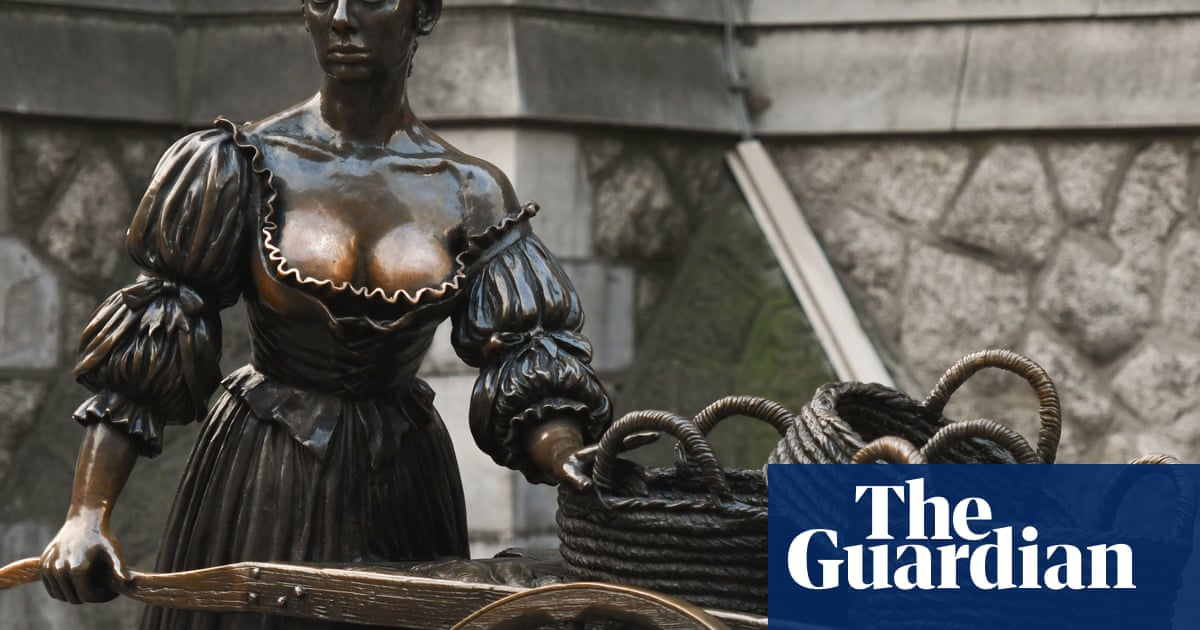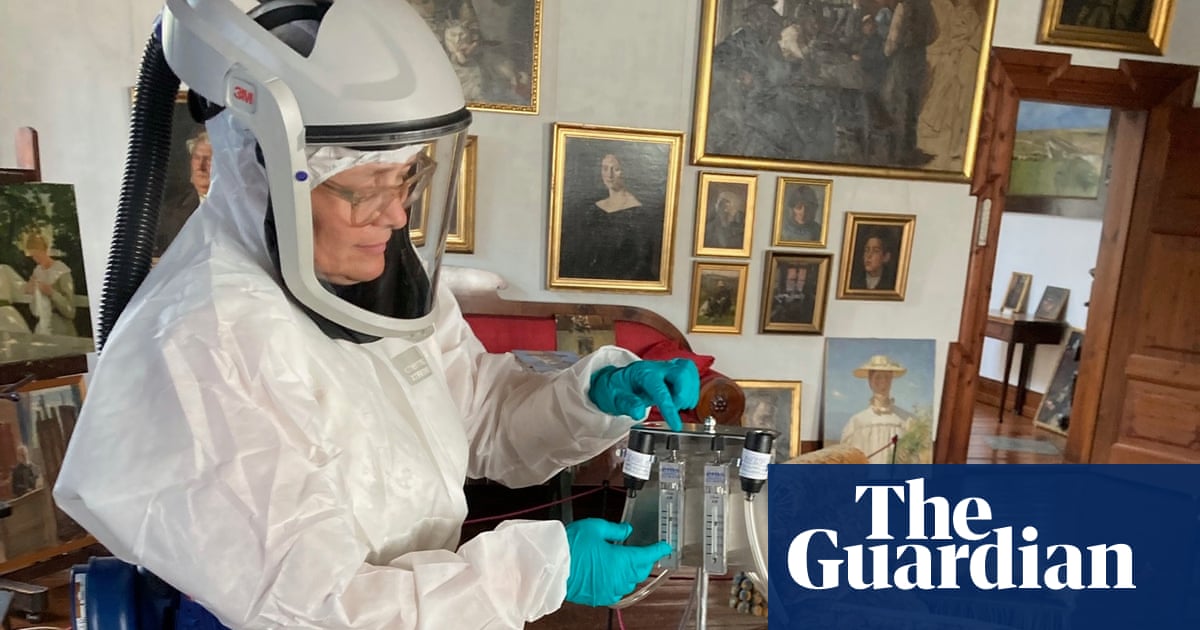The Atrato River winds through the dense rainforest of Colombia’s Chocó region for nearly 400 miles (600km) before spilling into the Caribbean Sea. Some of these tropical forests are among the wettest on Earth. Their flooded lowlands and swollen rivers are so impenetrable they have acted as an evolutionary barrier, making Chocó a haven for rare and remarkable species found nowhere else on the planet.
“We have so many animals that you won’t even know the names of many of them,” says María Mosquera, a community leader in the region, whose name has been changed to protect her identity.
The world’s largest conservation organisations have long sought to protect these biodiverse forests, home to jaguars, anteaters, Geoffroy’s tamarins and dozens of other endangered species. WWF regards the region as a conservation hotspot, and environmental damage here should be strictly limited and forests tightly protected, according to experts.
“But there is no such control here,” Mosquera says. “They are cutting down the forest indiscriminately – and there is no one to stop them.”

While international funding is funnelled into protecting these forests, timber is still being illegally cut and exported to the US, Canada and Europe, according to a new report by the charity Environmental Investigation Agency (EIA).
The EIA says it has undertaken four years of undercover operations, satellite analysis and examination of public records, which have revealed a booming illicit trade in tropical hardwoods that is not only devastating Colombia’s rainforests but also directly financing some of its most powerful and brutal armed groups.
About $24m (£18m) worth of timber – equivalent to approximately 30,000 trees or 18,500 hectares (70 sq miles) of forest – was exported from the Chocó and neighbouring Antioquia regions between 2020 and 2023 without the legal certification required under Colombian law, according to the agency.
The report names 17 US companies as having imported more than $4m worth of uncertified Colombian timber.
Researchers have also found that 95% of timber exports lack the certification required to show their species, origin and legal status prior to export.
In many cases where certificates were issued, investigators have found their details to be false. Satellite imagery reveals that canopies remain a blanket of trees in places where certificates say forests have been logged. And in areas where only selective logging is permitted, the forest is just a brown scar – suggesting the documents are being used to launder timber felled elsewhere.

The most targeted species is the cumarú, a tropical hardwood so prized for its beauty and durability that it is hurtling towards extinction.
Lack of controls also means loggers often concentrate on riverbanks due to their easy access – areas rich in biodiversity and particularly vulnerable to erosion. Illegal logging operations do not leave seedlings to regenerate the forest or avoid the felling that damages surrounding trees and open trails that fragment ecosystems, the report says.
Colombia has endured decades of complex armed conflicts involving its government, leftist guerrilla groups, rightwing paramilitaries and criminal organisations competing for power, territory, resources and control of narco-trafficking.
In the supply chain uncovered by investigators, trees felled in Colombia’s remote jungles end up as garden patios and roofs on homes in North America and Europe, where consumers unknowingly support the decades-long armed conflict, as well as poor working conditions.
Armed groups are exploiting African-Colombian and Indigenous communities to extract timber in conditions one logger described as slavery. Loggers told investigators they worked in 40C (104F) heat, often with unsafe tools and in dangerous conditions.

“We had been researching the situation for years, but it wasn’t until 2022, when we could finally visit the region, that we really saw how dire it was,” says Susanne Breitkopf, deputy director of EIA’s forest team.
“People are working in terrible conditions, trapped in debt and treated like enslaved people. Some are even losing their legs in sawmills. And that’s before you even think about the environmental damage.”
Many are not paid in wages but in food, alcohol or tools, trapping them in debt for the use of the chainsaws, fuel and river transport needed to work.
“You cut the wood, and they pay you with those things. In the end, the day you get paid, you still have nothing because you can’t even afford to give a candy to your child,” one logger in a remote rainforest region told EIA.
Colombia is one of the world’s most biodiverse countries and has a regulatory framework to promote sustainable forestry. Yet researchers have found that the system is either failing or simply being ignored.
after newsletter promotion
Unlike in Brazil or Peru, where inspectors patrol logging roads and trace timber from stump to port – sometimes fining those who evade regulations – no oversight was apparent along the Atrato. Researchers observed logs hauled by donkeys and floated downstream on rafts without interference by state authorities.
“We saw none of the controls you would expect to see – no evidence of any government oversight whatsoever,” says one investigator who worked on the report, who has requested anonymity.

The trade is dominated by armed groups that sprang up in the 1960s to protect landowners from guerrilla insurgencies and are now financed by cocaine trafficking, illegal mining and, as the report details, blood timber.
In the absence of uniformed state officials, armed men in balaclavas wielding assault rifles run river checkpoints and collect “security taxes” of up to $6,000 for the largest timber shipments.
In undercover interviews with EIA researchers, owners of timber companies confess to regularly paying off groups such as the Urabeños and Águilas Negras, some of Colombia’s most violent paramilitary organisations, for access to the region.
Juan Carlos Lozada, an MP, says: “This report documents with precision the scale of illegal logging of precious timber in our tropical forests and exposes how this activity is deeply intertwined with networks of criminality, armed violence, state corruption.
“This convergence of illegality, violent extractive economies, social exclusion and institutional weakness poses a serious threat not only to our ecosystems but also to the communities inhabiting our most biodiverse and marginalised regions.”
EIA says Colombia’s decentralised regulatory system – which relies on regional environmental agencies instead of a single national watchdog – is failing and prone to corruption.

Colombia needs a system that monitors cattle ranching and logging, says Lozada, who is trying to push the deforestation-free sustainable cattle farming bill through congress.
“Colombia urgently needs comprehensive traceability systems covering both timber and beef to ensure that no product linked to environmental and social harm ends up on our shelves – whether at home or abroad,” he says.
Even before the report’s findings became public, Colombia’s environmental ombudsman, the Procuraduría Delegada para Asuntos Ambientales y Agrarios, had begun to investigate the illegal logging trade. A joint US-Colombia environmental enforcement body monitoring the free trade agreement between the two countries is also reviewing the issue.
Under the US’s Lacey Act and equivalent EU laws, companies are legally required to ensure that imported timber is legal and conflict-free. Claiming a lack of awareness when sourcing wood from one of the most violence-stricken regions of a country scarred by six decades of war does not hold up, EIA researchers say.
“In the US and EU, importers are failing to ask the right questions – and hiding behind ignorance,” Breitkopf says. “That’s not an excuse.”

 3 hours ago
6
3 hours ago
6













































